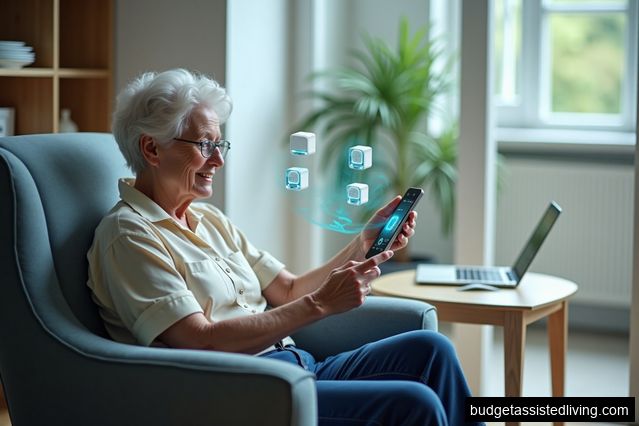Enhancing Communication and Connectivity
One of the significant benefits of technology in senior care is its ability to improve communication and connectivity. With the advent of smartphones, tablets, and other devices, seniors can easily stay connected with their loved ones. Video calling platforms allow face-to-face conversations, reducing feelings of isolation and loneliness. Additionally, social media platforms provide opportunities for seniors to connect with others who share similar interests and experiences.
Access to Information and Resources
Technology has made information easily accessible to seniors, empowering them to stay informed about their health, medications, and community resources. Mobile applications and websites provide access to a wealth of information on topics such as exercise routines, healthy recipes, and mental wellness. Seniors can also use technology to research and book appointments with healthcare providers, eliminating the need for extensive paperwork and phone calls.
Promoting Independence and Safety
Assistive technologies play a crucial role in promoting independence and safety among seniors. Smart home devices, such as voice-activated assistants and motion sensors, can help seniors manage their daily tasks more efficiently. These devices can remind them to take medications, turn off appliances, or lock doors. Wearable technologies, such as fitness trackers and fall detection devices, provide real-time monitoring and immediate assistance in case of emergencies.
Remote Health Monitoring
Technology enables remote health monitoring, allowing healthcare professionals to keep track of seniors' vital signs and health conditions from a distance. Wearable devices can monitor heart rate, blood pressure, and other health parameters, transmitting the data to healthcare providers. This real-time monitoring enables early detection of potential health issues, preventing hospitalizations and ensuring prompt medical intervention.
Enriching Mental Stimulation
Technology offers various avenues for seniors to engage in mental stimulation and cognitive exercises. Brain training applications and games are specifically designed to improve memory, attention, and problem-solving skills. Virtual reality experiences provide opportunities for seniors to explore new places, revisit cherished memories, or engage in immersive learning experiences. These technologies help maintain cognitive function and reduce the risk of cognitive decline.
Virtual Support and Telemedicine
Telemedicine has gained significant popularity in recent years, especially among seniors. Virtual support and telemedicine services allow seniors to receive medical consultations and support from the comfort of their homes. They can connect with healthcare professionals through video calls, eliminating the need for physical visits. This convenience not only saves time and effort but also ensures access to healthcare services, particularly for seniors with mobility constraints.








